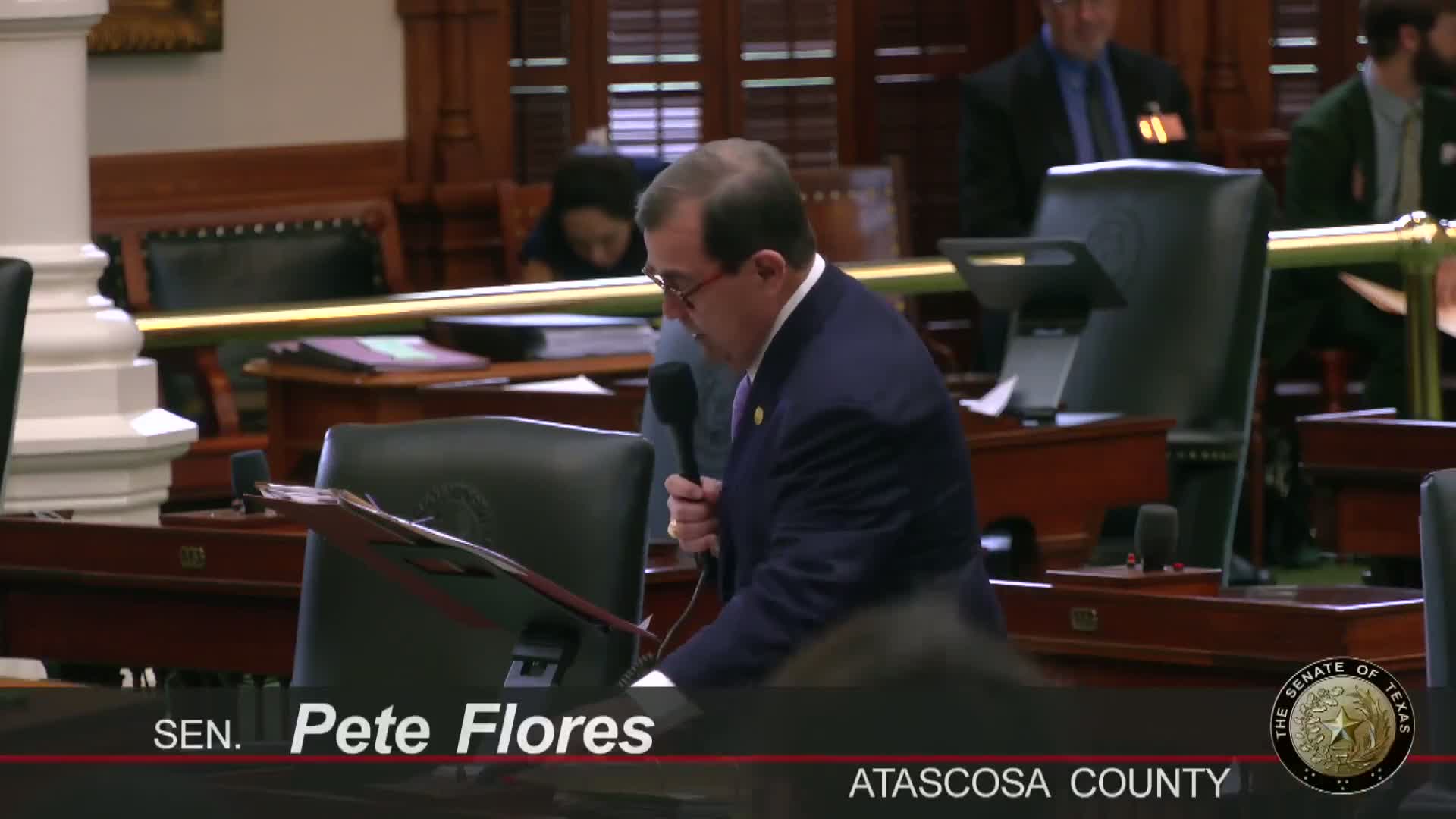Article not found
This article is no longer available. But don't worry—we've gathered other articles that discuss the same topic.

Senate approves bill allowing gas utilities to defer certain costs for new infrastructure pending Railroad Commission review

Senate approves bill elevating penalties when offenders wear metal or body armor during certain felony offenses

Senate concurs with House to create grid-security commission, require biannual tabletop exercises with PUC and ERCOT

